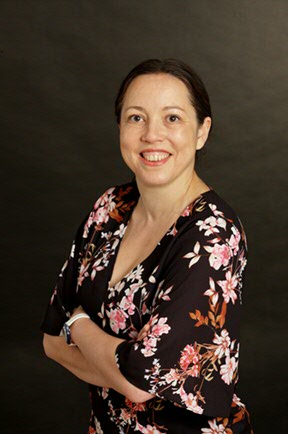Anastasia Borschevsky appointed Associate Professor of Computational Atomic and Molecular Physics
Anastasia Borschevsky was appointed as Associate Professor of Computational atomic and molecular physics on June 1st, 2020. Anastasia has been a member of the Van Swinderen Institute for Particle Physics and Gravity since 2015, when she received the Rosalind Franklin fellowship that provided her with a tenure track position and a possibility of establishing her own research group.
In her interdisciplinary research, Anastasia applies state-of-the-art methods from computational chemistry to address fundamental problems in physics. The focus of her work are high accuracy relativistic calculations of atomic and molecular properties, addressing two main topics: 1) search for physics beyond the Standard Model with atoms and molecules and 2) investigations of properties of heavy and superheavy elements and ions. Most of the work in her group is carried out in direct collaboration with experimental teams, both at the University of Groningen and internationally.

Anastasia received her PhD in 2010, from Tel Aviv University. Since then, she worked as a postdoc at Massey University (Auckland, New Zealand) and at the GSI (Darmastadt, Germany). Last year Anastasia received an NWO Vidi grant for an ambitious large-scale development project, "High Sector Fock space coupled cluster method: benchmark accuracy across the periodic table". Furthermore, she is a co-applicant of the successful FOM(NWO) Nikhef/VSI/VU joint program "Physics beyond the Standard Model with cold molecules (NL-eEDM)" and a participant in the H2020-MSCA-ITN-2019 Innovative Training Network "LISA-Laser Ionization and Spectroscopy of Actinide elements".
More news
-
19 December 2025
Mariano Méndez receives Argentine RAÍCES award
-
18 December 2025
Why innovate, and for whom?
-
17 December 2025
Ben Feringa wins Feynman Prize
